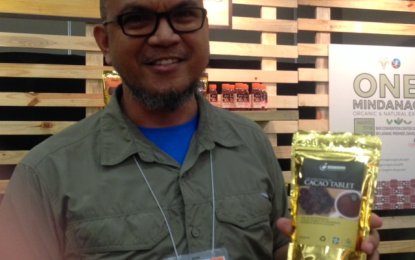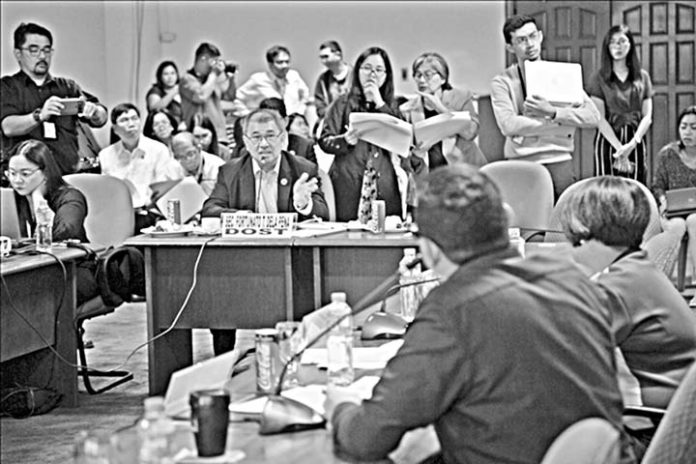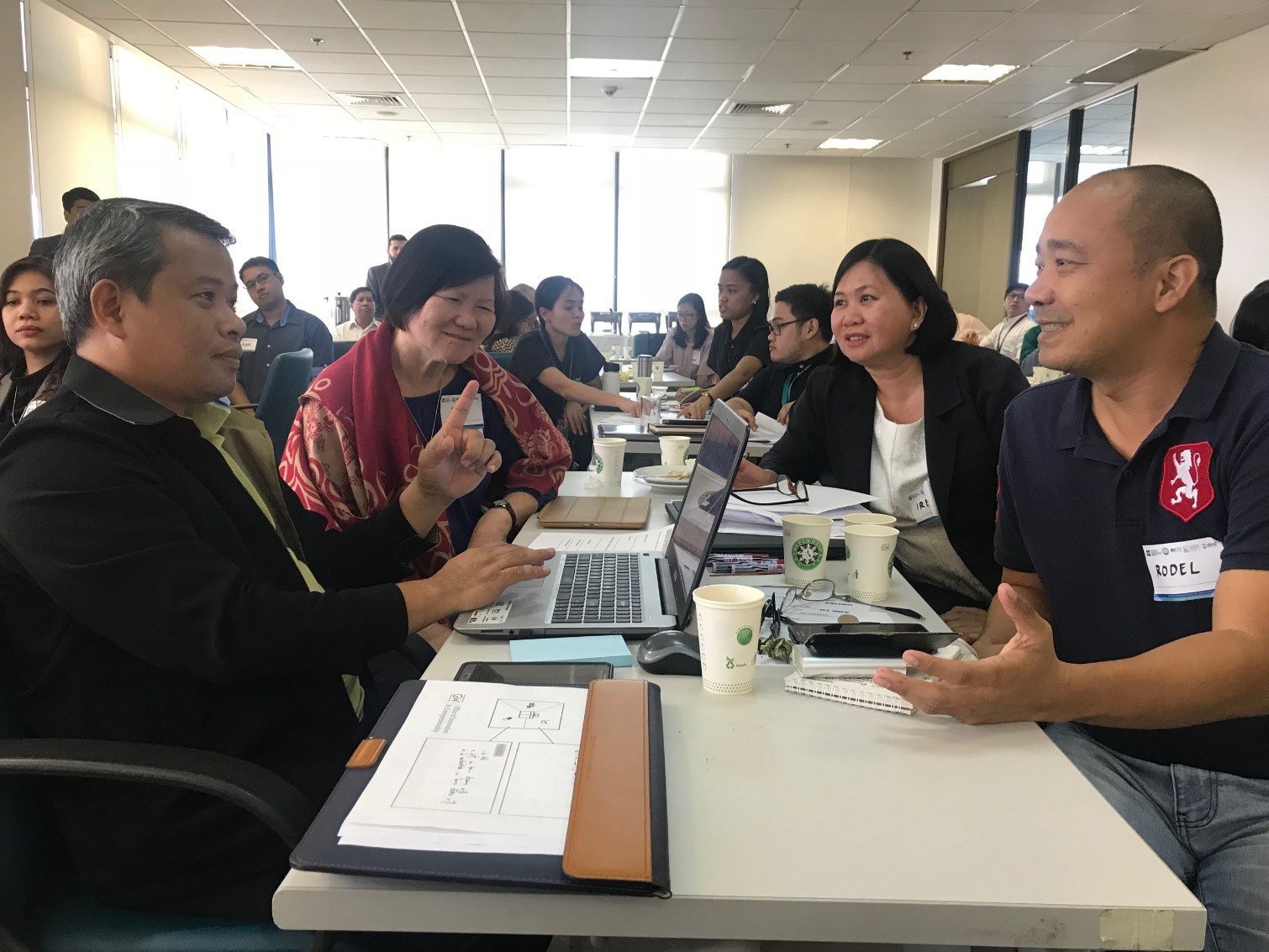PTV News AB

DAVAO CITY — From the desert of the Middle East to cacao farms in Davao City, 25 former and current Overseas Filipino Workers (OFW) are now finding their own niche in the world of chocolate-makers.
Most of them are Maranao, Tausug, Maguindanaon and Kagan Muslims but some are Christians from various places in the Philippines. They have bonded through crowdsourcing to raise P5 million in initial capital to put up a chocolate-making company in Davao City.
At P135,000 minimum share, the 25 OFWs are now trailblazing the halal dark chocolate industry and even produce cacao tablet, cacao powdered tea, cacao vinegar, even a banana chocolate. They named their company MS3 Agri-ventures, located in Sitio San Isidro, Bunawan, in Davao City.
In fact, MS3 Agri-ventures was awarded as the Philippines’ Best Cacao Tablet producer in 2017 by the Asia Halal Brand Awards in December 17, 2017 in Kuala Lumpur Malaysia, for its dark cacao tablet.
Neil Santillan, who is also known by his Muslim name Abdul Karim, left his job as a TV producer and part-time graphic artist in Qatar after 14 years to focus on developing his small farm in Bunawan, this city.
Santillan said there are many opportunities in the farm. “The future is huge. It is a long-term engagement but at a small price,” he pointed out when asked about his new venture.
Santillan used crowdsourcing to raise funds for his planned livelihood project and 25 OFWs responded. Those who have bigger salaries gave more shares until they were able to raise the needed amount to put up and run the chocolate factory.
He tended a five-hectare farm in Bunawan planted with cacao trees with the help of some farmers.
He said it is difficult to manufacture halal products especially if one is not sure of the manufacturing company. That’s why he decided to put up the factory to initially manufacture small volume of chocolate products using the funds raised.
Santillan said he practiced value-adding so that the company will not only be producing cacao tablet. It has acquired a small machine that can manufacture 20 kilos of cacao tablet.
We practiced all halal processes from soil preparation to making the products, Santillan said. The farm is the source of their raw materials.
He also attended the training provided by Cacao Industry Development Association of Mindanao (CIDAMI) and the Department of Science and Technology (DOST) — from planting to have the best beans, post-harvest practices, and other good farming practices.
From a small livelihood project, Santillan registered the company with the Department of Trade and Industry and converted it to corporation. He paid P41,000 for the registration with the Securities and Exchange Commission (SEC) with a capital authorization of P20 million.
It’s a small capital because some of the OFWs are just earning enough, he said in Cebuano during an interview. He also intends to buy adjacent lands.
As a startup company, Santillan said only 6,000 kilos of fermented beans are being processed for 108,000 bars of 50 grams. MS3 sells each bar at P65 pesos.
To market their products, MS3 joins international exhibition such as the one held in Qatar. Santillan said he sought people he knew from years of working and linked with them. MS3 has also signed a Memorandum of Understanding with a Malaysian firm and Poland to get access to international exhibitions.
At these international exhibitions, MS3 hopes to get a market for its products.
According to Santillan, their products drew good reviews from international buyers because of its superior quality. He also hoped to finally strike a deal with a buyer from New Zealand, who earlier expressed interest on MS3 products.
Santillan said he is only waiting to complete all the legalities as an exporter and the lab test for all the company’s products. MS3 is also being assisted by the Department of Agriculture (DA) 11 in marketing the products and linkage.
MS3 products are also displayed at Robinsons here.
ONE Mindanao
MS3 Agri-ventures is also one of the exhibitors at the ongoing Mindanao Organic and Natural Expo or ONE Mindanao put up by the Department of Ahriculture at the SMX convention center.
ONE Mindanao is aimed at promoting Mindanao’s organic and natural food products.
The event, which was graced by President Rodrigo Duterte and Senator Cynthia Villar when it opened Saturday afternoon, features food products, ingredients, indigenous fibers and weaves from food producers, processors and entrepreneurs from Mindanao.
DA 11 regional director Ricardo Oñate said the ONE Mindanao expo is a prelude to the island-wide organic and natural expo for Visayas in 2019 and Luzon in 2020.
He said it is designed to raise public awareness about the benefits and availability of the natural and organic products in the market.
Among those on sale are vegetables, fresh fruits, spices and herbs, colored rice, natural sweeteners, artisan chocolates, single-origin-local coffee, dairy products, and clothes made of traditional and natural fibers.
Agriculture Secretary Emmanuel Piñol said Mindanao has a lot to offer when it comes to traditional and organic food production.
DA, he said, aims to facilitate trade between the farmers, consumers, and institutional buyers of organic products.
Villar, who is the chairperson of the Senate Committee on Agriculture and Food, said organic products have more health benefits.
Villar said she is supportive of the organic products. Aware of the expensive prices of organic products, she was optimistic the price could go down if more and more farmers will engage in organic farming and increase the availability of products in the market.
She said organic farming must be supported, considering that 38 percent of the soil is degraded from inorganic farming because of use of petroleum-based fertilizers and chemical pesticides.
Villar said natural fertilizers are cheaper than chemical fertilizers. Farmers, she said, can make their own fertilizers through vermicasting.
She added that the government is also giving support to natural farming such as providing composting facilities.
Villar emphasized that organic farming is an opportunity for farmers to stay healthy. (Lilian Mellejor/PNA)







